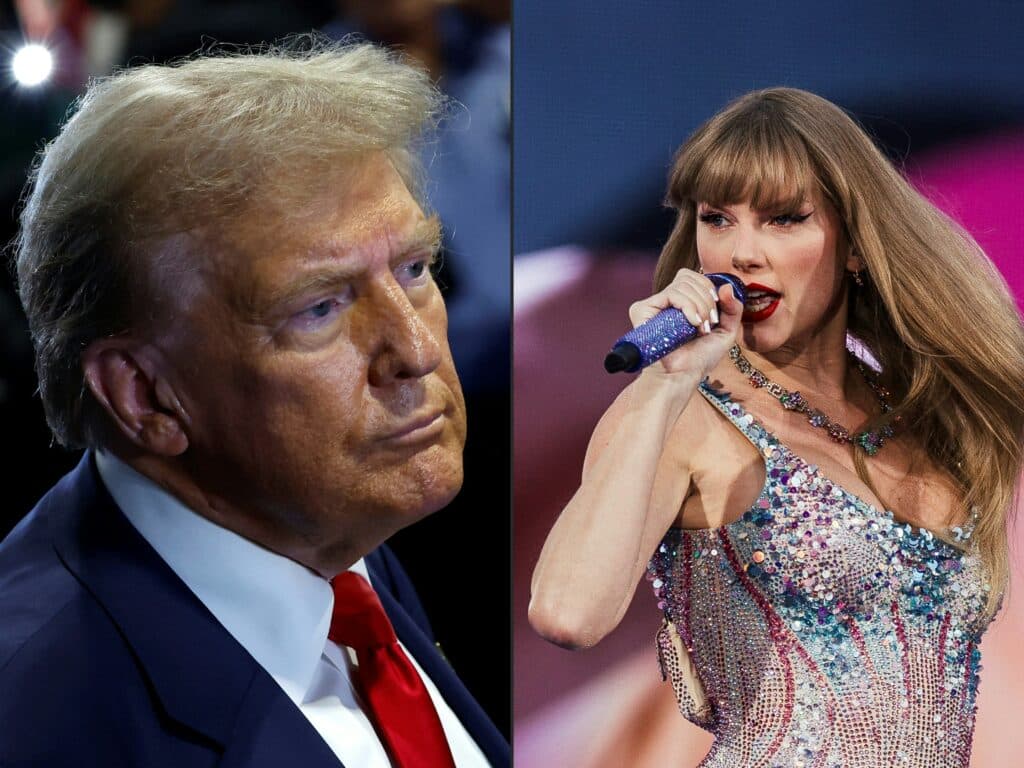‘I HATE TAYLOR SWIFT,’ Trump tweets

This combination of pictures created on September 15, 2024 shows US Republican presidential nominee, former US President Donald Trump speaking to reporters in the spin room after debating Democratic presidential nominee, US Vice President Kamala Harris, at Pennsylvania Convention Center on September 10, 2024 in Philadelphia, Pennsylvania while at right is US singer and songwriter Taylor Swift performing on stage as part of her Eras Tour in Lisbon on May 24, 2024. | Photo by Kevin Dietsch and ANDRE DIAS NOBRE | AFP
WASHINGTON, United States — The tweet came as a surprise, even from the provocative Donald Trump: “I HATE TAYLOR SWIFT!” the former president said Sunday.
Though the all-caps post came without accompanying commentary or explanation, the context was clear.
On Tuesday, just minutes after a debate with Vice President Kamala Harris that Republican Trump was widely seen as losing, the superstar singer/songwriter posted a message on Instagram saying she would be voting for his Democratic rival, calling Harris a “steady-handed, gifted leader.”
READ MORE:
Taylor Swift endorses Kamala Harris for president
US election debate: Harris, Trump detail their starkly different visions
Trump safe after shots reported in his vicinity – secret service
Celebrity endorsements rarely carry enormous weight, but the hugely popular Swift is seen as being in a class of her own, with more than 400 million followers on Instagram, TikTok and other social media platforms — 10 million of whom “liked” her Instagram post.
“Going after Taylor Swift is a genuinely bad campaign strategy,” said one poster on social media platform X. “Taylor doesn’t get mad, she gets even.”
It was not clear what Trump hoped to gain by attacking Swift, though he may calculate that any publicity is better than none.
READ MORE: Trump says Kamala Harris ‘destroyed’ California
He has been criticized, even by fellow Republicans, for his recent association with conspiracy-minded right-wing influencer Laura Loomer, who has at times joined him on his campaign plane.
The 31-year-old Loomer — who has called the Sept. 11 terror attacks an “inside job” and said some recent mass shootings were staged by Democrats — recently suggested that Swift had entered an “arranged relationship” with football star Travis Kelce “to influence the 2024 election.”
There is no evidence to support any of those claims.
Disclaimer: The comments uploaded on this site do not necessarily represent or reflect the views of management and owner of Cebudailynews. We reserve the right to exclude comments that we deem to be inconsistent with our editorial standards.
